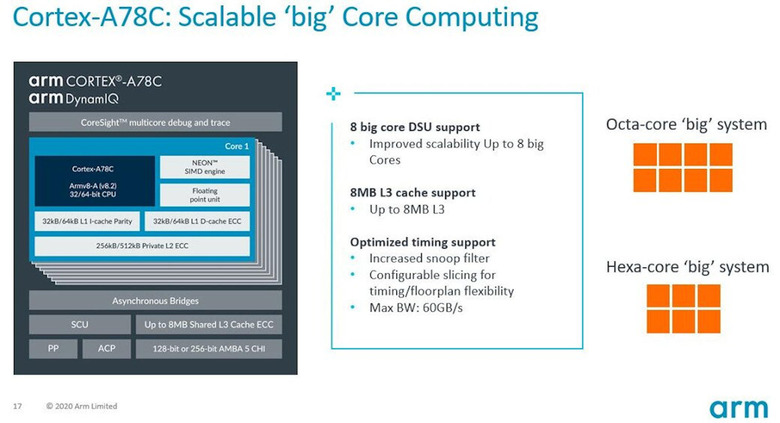Arm Cortex-A78C CPU Aims For Always-On Laptops
Arm's CPU designs and technologies practically power a large chunk of the computers in the world, from the ones we put in our pockets to those that drive our cars' brains. The one segment that Arm-based chips haven't yet truly taken over is the desktop and laptop market. That might be changing quickly, especially with Apple Silicon close to launching, and Arm itself is launching a new Cortex-A78C CPU that it envisions will power on-the-go devices, a.k.a. Arm-powered laptops like those pushed by Microsoft.Arm announced last May the technology that will power the next generation of mobile and embedded processors. These include the Cortex-A78 CPU as well as a matching Mali-G78 GPU. These may primarily be earmarked for mobile devices but Arm is also creating variants to cater to other computing segments, like the Cortex-A78AE for automotive computers.
Now it's announcing the Cortex-A78C as a scalable and secure compute product for laptops. One key way it differs from its mobile counterpart is that octa-core and hexa-core configurations will mostly be made up of all big CPU cores, compared to the big.LITTLE mix often used in smartphones. Along with an increased 8MB L3 cache memory, this promises that the CPU is capable of handling heavier, multi-threaded workloads than even the most powerful gaming smartphones.

Of course, such systems can also be used in gaming, especially when paired with a Mali-G78. Going beyond those usual use cases, however, Arm boasts that the new Cortex-A78C features enhanced data and device security, things that are often more relevant for computers that are used in enterprise and office scenarios, like laptops.
As interesting as it may all sound, Arm itself doesn't make these processors or sell them directly. It will be up to its manufacturer partners to license the design and IP to create chips that will actually be put inside finished products. When such products will actually be available, Arm isn't saying yet. Whether such products will be able to take on the upcoming first generation of Apple Silicon MacBooks may be an even bigger question.
